By Jeff Field | Published January 16, 2024 | Posted in Bankruptcy | Tagged Tags: debtors, liquidation, redemption | Leave a comment
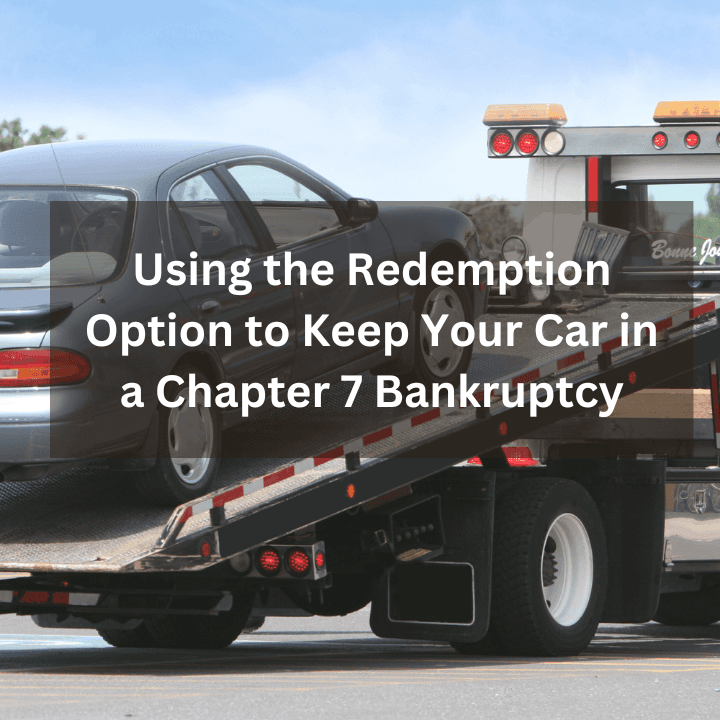
Using the Redemption Option to Keep Your Car in a Chapter 7 Bankruptcy
Chapter 7 bankruptcy allows individuals to obtain a fresh start by discharging most of their debts while liquidating their assets to pay off creditors. However, there are ways that debtors can shield a substantial amount of their assets from liquidation. One of these is the redemption option. A debtor can keep a financed car by Read More
Read More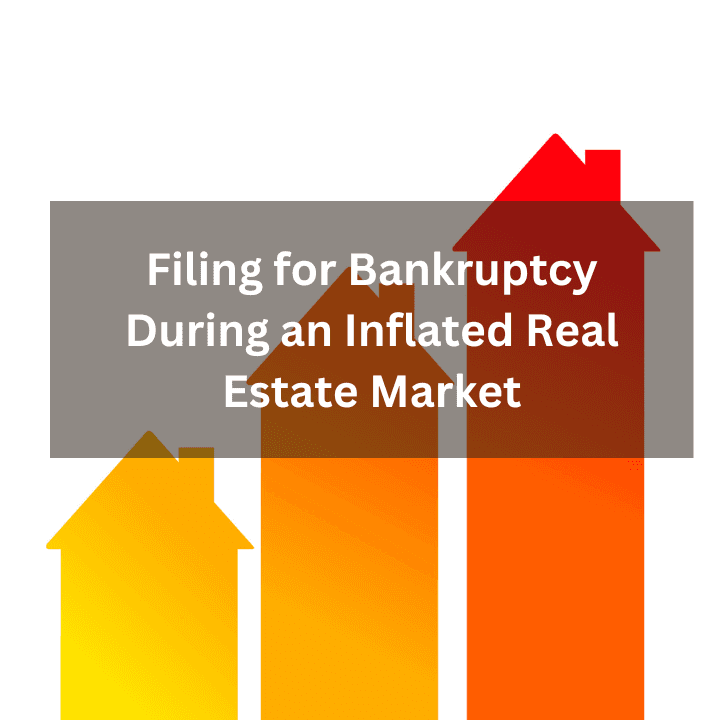
Filing for Bankruptcy During an Inflated Real Estate Market
Home prices in Georgia and across the country rose steadily through 2023 and show no signs of abating, despite a surge in mortgage interest rates. This is due to a shortage of housing inventory caused in large part by older Americans buying up properties, many for investment purposes. But whatever the reasons, an inflated residential Read More
Read More
Should Married People File for Bankruptcy Jointly or Individually?
Married people who are in financial straits have the option of filing jointly for bankruptcy, but that doesn’t always mean they should. Since assets and expenses are often shared in a marriage, it’s common for the money troubles of one spouse to impact the other. But sometimes one spouse has more property and the other Read More
Read More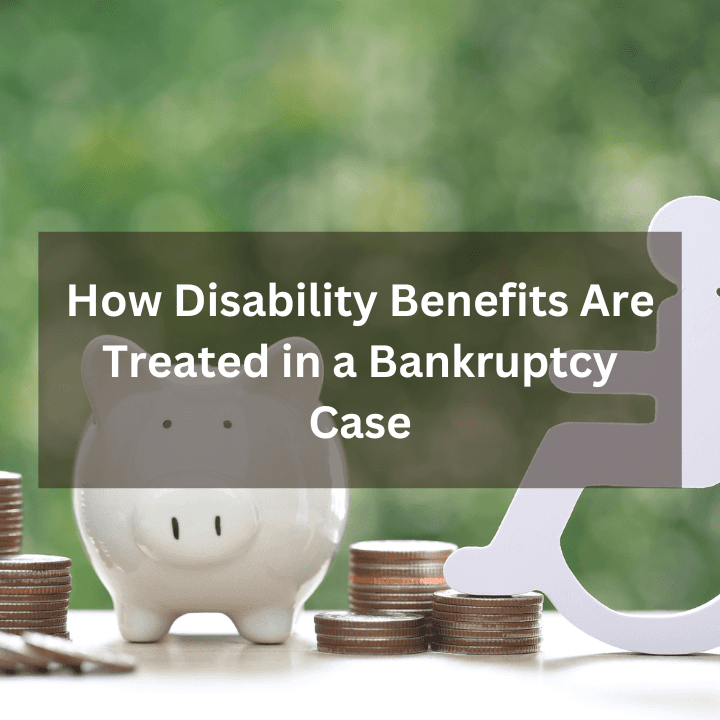
How Disability Benefits Are Treated in a Bankruptcy Case
If you are considering filing for bankruptcy and are on disability, you may be concerned about how the case will affect the benefits you are receiving. Although they are deemed assets under bankruptcy law, disability benefits are generally protected from creditors by being covered by state and/or federal exemptions. However, having these benefits as part Read More
Read More
Calculating Your Monthly Payment in a Chapter 13 Plan
A Chapter 13 bankruptcy, also known as a wage earner’s plan, helps you get out of debt trouble through a court-supervised repayment schedule. The most beneficial aspect of this remedy is that you can significantly reduce your total debt while being granted several years to pay it off monthly. During this time, creditors are barred Read More
Read More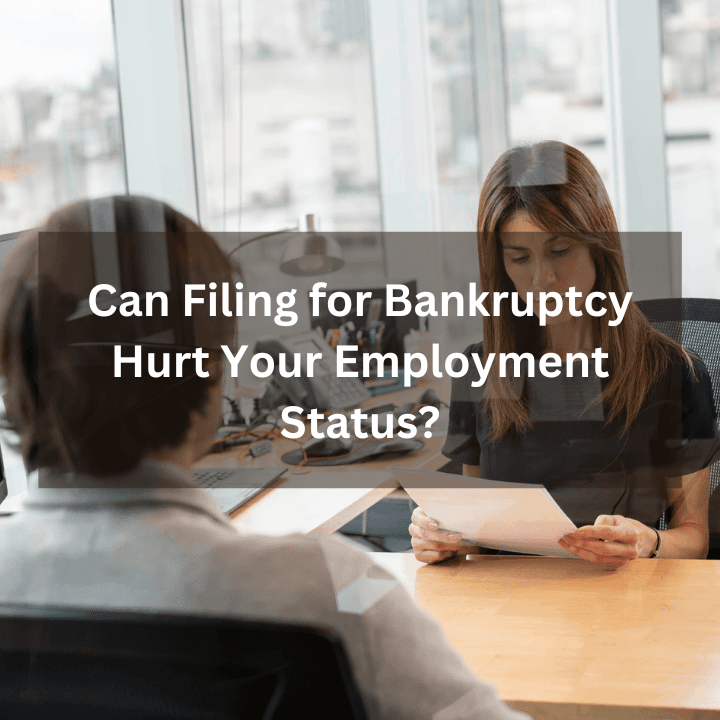
Can Filing for Bankruptcy Hurt Your Employment Status?
Deciding to file for bankruptcy is a significant event that you may fear will affect your life in multiple ways. Among your likely concerns is the potential impact of bankruptcy on your present employment status and future job prospects. However, there is less reason to worry than you might think. Generally, a personal bankruptcy should Read More
Read More
Dealing With Discharge of Debts Based on Willful and Malicious Injury
Bankruptcy provides individuals and businesses with a fresh financial start by discharging or eliminating their debts. However, not all debts are eligible for discharge. One category of non-dischargeable debts are those stemming from willful and malicious injury. Creditors can challenge the discharge of such debts through an adversary proceeding, at which debtors can raise defenses Read More
Read More
7 Common Pitfalls in Meeting the Chapter 7 Means Test
When individuals struggling with overwhelming debt decide to file for Chapter 7 bankruptcy, they must usually pass the means test. This is the government’s method of determining whether the debtor actually has sufficient income to repay creditors, at least partially. The means test can be a formidable hurdle to establishing eligibility for bankruptcy relief. The Read More
Read More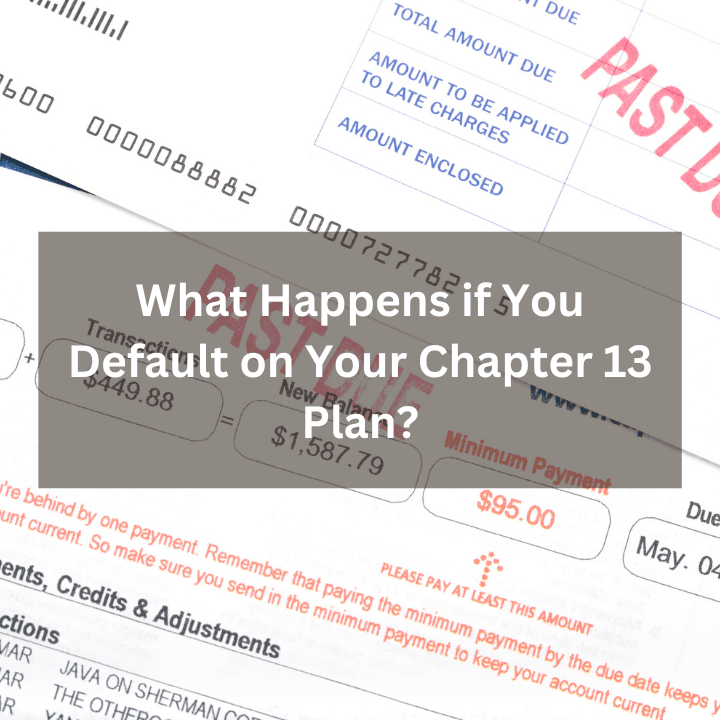
What Happens if You Default on Your Chapter 13 Plan?
A Chapter 13 bankruptcy can be an effective way to bring debt under control while preserving your most important assets. It allows you to structure a plan for repaying a portion of your debt over a three- to five-year period, with the rest being discharged afterward. However, financial difficulties encountered during the life of the Read More
Read More
Creditors’ Meetings in Bankruptcy Cases Are Now Held Online
Soon after you file a Chapter 7 bankruptcy petition, you will be required to attend a creditors’ meeting. Its purpose is to verify the accuracy of the information in your filings and to determine if there is anything that would make you ineligible for debt relief. Creditors’ meetings —also known as Section 341 meetings — Read More
Read MorePlease fill out the form below and one of our attorneys will contact you.





